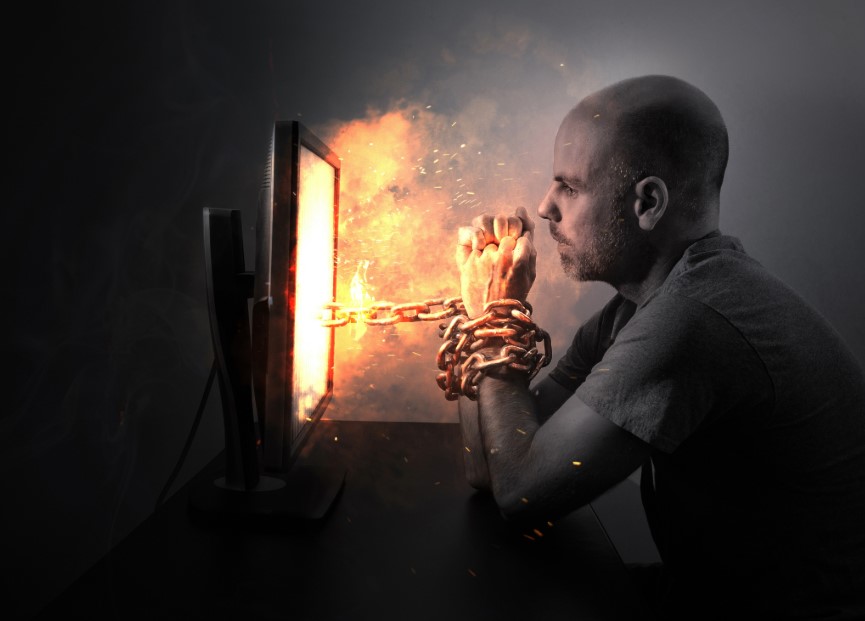
What is addiction?
Our lives are filled with a wide variety of behaviors that we tend to repeat with frequency and consistency—from eating meals and snacks, to showering, or checking our phones. Particularly when such behaviors offer a pleasurable or mood-altering reward, we find ourselves repeating them. Yet there is a point at which engaging in a behavior or consuming a substance—whether a food, drink, or drug—becomes so compulsive that it begins to feel like it is the one consuming us.
While drug abuse and addiction were initially thought to be due to a lack of willpower, research shows that people who misuse drugs and alcohol have differences in the regions of their brains that control judgment, decision making, and impulsiveness.
Why Does Someone Become An Addict?
People are drawn to addictive behaviors for a variety of reasons. Addiction can serve as a potent form of self-medication, offering an escape from stressful life experiences and the feelings associate with them, whether past or present. Addiction can also seem to fill a void, or lessen painful feelings associated with depression or anxiety.
Some people are addicted to specific substances, such as alcohol or drugs, including prescription medications. Other people find themselves drawn to other compulsive behaviors that can lead to addiction, such as gambling, work, food, sex, internet, television, gaming, shopping, or exercise. Sometimes these other addictions are insidious and difficult to recognize; they can begin as harmless habits that we engage in mindlessly, but gradually consume more and more of our time.
While some amount of mindless activity can certainly be helpful for coping with stress, too much time spent on these activities becomes problematic. Over-indulging in these activities can numb us from our feelings, suppress our consciousness or intuition, and deplete our energy. These addictions create barriers in reaching our goals and staying true to our values.
If you find yourself unable to stop doing something that you know has become harmful to you or your loved ones then maybe its time to take a closer look with psychotherapy.
What are the signs of addiction?
Often, if you have a substance use or other addiction disorder, your family or friends might notice that you have a problem before you do. Some of the common signs include:
- Inability to stop consuming a substance or engaging in an activity, despite the negative consequences of continuing
- Withdrawal: Experiencing negative side effects, such as nausea or irritability, when you stop using
- Tolerance: Discovering that you must use the substance, or engage in the activity, more and more to achieve the same effect
- Having urges to use substances or engage in behaviors that block out other thoughts
- Challenges with self-care
- Poor self-image, shame, or diminished self-respect
- Difficulties functioning in work, family, or social relationships
- Spending money on the substance even when you can’t afford it
- Failing to meet work and social obligations due to addictive behavior

Treating Addiction
Addiction can ruin lives. I have a specialization in treating addiction and improving the lives of the effected patients and their families. I have assisted individuals with addictions related to alcohol, drugs, gambling, sex, food, and other substances and processes.
Utilizing a combination of psychodynamic theory and cognitive behavioral therapy (CBT), we can help you to uncover the ways in which your thoughts, feelings, and behaviors—together with your personal history and social environment—inform and perhaps encourage your addiction.
This heightened understanding can help you to either change or avoid the factors that are your most significant triggers for addictive behaviors. Behind addictive behaviors, patients often discover a variety of suppressed feelings—such as fear, denial, a need for control, or a desire to numb their pain.
Recovery includes feeling and processing these distressing emotions, rather than continually trying to distract oneself from them. It’s also not uncommon to find that a patient is experiencing a co-occurring addiction and another mental health issue, such as depression or anxiety. Working together, we can organize a plan as you strive for, achieve, and maintain sobriety, while preventing or coping with relapse.
